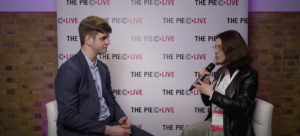Over the past six months, three institutions, including our own, have been awarded an Athena Swan Gold Award by Advance HE for efforts to promote gender equality.
In the two decades we have been involved with Athena Swan, there have been many criticisms across the sector about programmes that work towards gender equality. We have all heard a few voices say that it is merely a tick box, a trophy to collect but fundamentally meaningless, that there is no place for women-only activities in an inclusive society, and questions about why are we still focusing on gender – it’s been fixed!
But for the (mainly) women involved in this work, these gold awards, and Athena Swan in general, are incredibly meaningful and have been the conduit to achieving significant change. For example, during the Covid-19 pandemic, equality, diversity and inclusion (EDI) was front and centre in our university’s recovery plan. For our research laboratories to reopen under social distancing restrictions, timeslots were rationed, but right from the early planning stages, the principles of equality underpinned decision-making. This meant that all researchers whether postgraduate students, staff, early career or senior, regardless of funder or perceived prestige of the research programme, had access to the same number of laboratory hours, at a time of day aligned with home circumstances and staff preferences where possible. This approach simply would not have happened if women, and Athena Swan Champions in particular, were not sitting at those tables.
The room where it happens
Just look at what happened nationally when women were excluded or under-represented in the pandemic decision-making teams. In her evidence to the Covid Inquiry, as reported at that time in The Guardian, senior civil servant Helen McNamara said: “There was a serious lack of thinking about… how people look after each other in families and communities… about the impact on single parents. There was a disproportionate amount of attention given to more male pursuits … football, hunting, shooting and fishing.”
This highlights that committees which lack diversity can develop groupthink and become echo chambers, while diverse committees often make better decisions. In universities, Athena Swan has encouraged and enabled women to sit round senior management tables as decision-makers, often for the very first time in their careers. But more than that, they are sitting at that table with the brief to both think differently and to challenge.
Obviously, everyone should be mindful of the consequences of decisions on under-represented groups in all settings, but it is sometimes difficult to think critically about our own actions or to examine them from different angles or perspectives. That is why it is so important to have someone who also brings EDI lenses for everyone to try on.
The “challenge” message may not always be well-received by all colleagues and senior leaders. The process of applying for an Athena Swan award will prompt, and indeed require, institutions to count the number of women, men and non-binary people at every level, every role and across important parameters such as recruitment, promotions, speaker lists, and student attainment. These statistics have reportedly caused senior leaders to wring their hands and claim that women don’t apply, or there aren’t enough women ready to take that role, that the women candidates’ CVs just aren’t as good, and maintain that appointments are based on merit only.
Many in universities do cling to the notion that meritocracy exists, that perceptions of merit are entirely free of bias, and that no system or individual confers merit on someone else. We agree that selection processes must be fair, transparent, based on qualification, skills, experience and ability; however, established ways of working and thinking have resulted in women who make up more than 50 per cent of the population accounting for less than 20 per cent of STEM professors. There is clearly something wrong here.
Hard yards
20 years ago at Queen’s, we began the hard work to improve processes and structures. And in doing so, it has changed the culture and improved the working environment for everyone – with students and staff bringing their whole selves to where they work and study. Flexible working patterns are normalised, and one is almost just as likely to hear a male colleague decline a meeting because of sports day or family commitments.
Women are able to talk about the impact of taboo subjects more openly such as infertility, miscarriage, and menopause on life and work, and students are encouraged to challenge and report unwanted behaviours. Athena Swan gave us the vehicle to do that – it has advanced progress for minority groups and opened the door to other inclusion frameworks.
But the work is not done. As progress continues, there have been suggestions across universities that the next stage could be to replace Athena Swan programmes with broader EDI strategies. We disagree. There is no hierarchy of equalities.
While we have made huge strides towards gender equality, it seems illogical to suggest that it has been achieved and now could be consigned to history. Instead, we believe that implementing the mindset of active inclusion, born out of gender equality programmes, will lead to better outcomes for all under-represented groups.
We must not take the progress that has been so hard-won for granted. It could easily be lost in the blink of an eye. We aren’t ready to stop counting women yet. Not until every single person who every makes a decision pauses to consider – who does this not work for, and who is being excluded? We want to get to a place where the Athena Swan Champion is not the first person in the room to notice that only men have been chosen.




